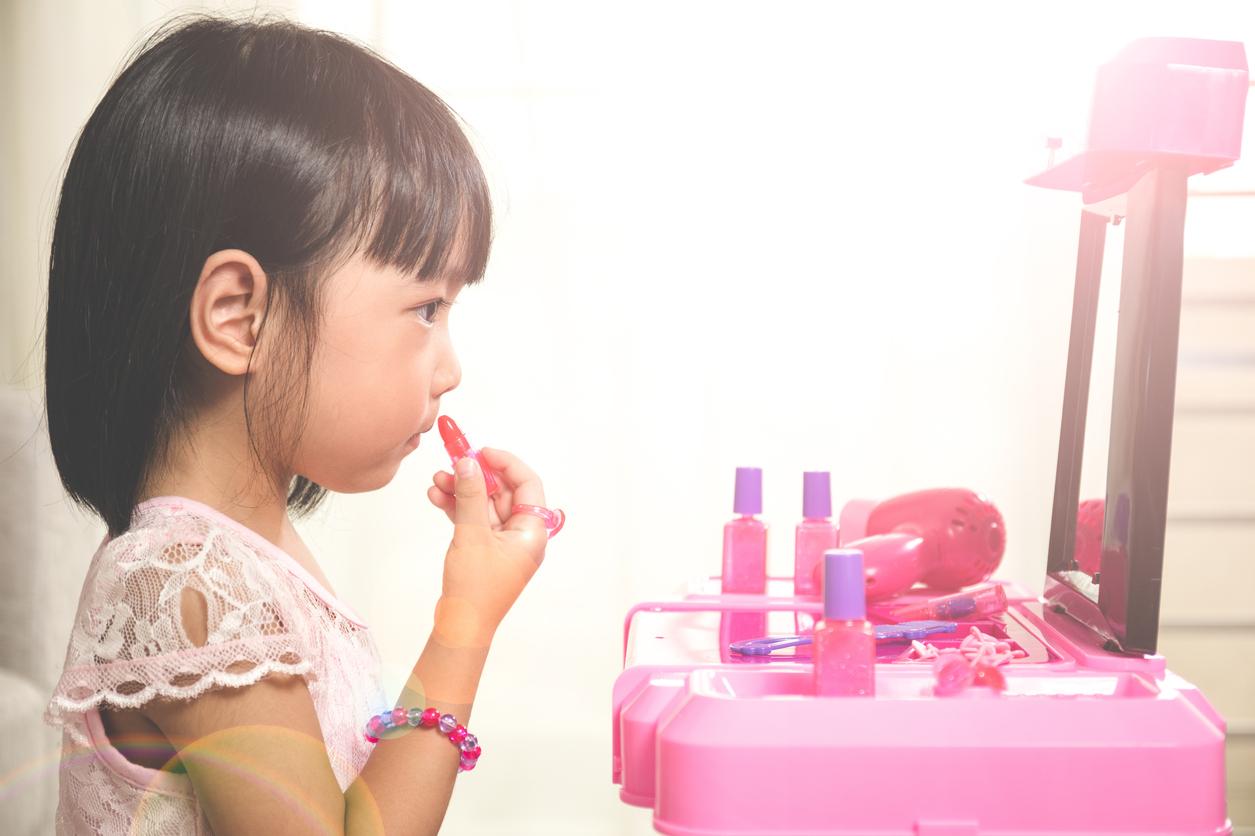Girls exposed to chemicals in make-up and other products hit puberty earlier, study suggests
Increases detected in mother's urine of chemicals used in scented products and toothpaste associated with earlier puberty in daughters

Exposure to chemicals in make-up, shampoos and other personal care products may be causing young women to go through puberty earlier, a study suggests.
Researchers from the University of California studied how chemicals widely used in household products can impact hormone signals which underpin growth and development.
The study, published in the journal Human Reproduction, examined chemical groups including phthalates, parabens and phenols using urine tests.
For some of these chemicals they found that for every doubling of the concentration measured in the urine of pregnant women, their daughters went through puberty on average a month earlier.
Phthalates are used in scented products such as perfumes, deodorants and soaps, while parabens are preservatives in cosmetics and phenols are used in everything from lipstick to lotion.
“We found evidence that some chemicals widely used in personal care products are associated with earlier puberty in girls,” said Dr Kim Harley, associate professor in public health at the University of California, who led the study.
“Specifically, we found that mothers who had higher levels of two chemicals in their bodies during pregnancy – diethyl phthalate, which is used in fragrance, and triclosan, which is an antibacterial agent in certain soaps and toothpaste – had daughters who entered puberty earlier.
“We also found that girls with higher levels of parabens in their bodies at the age of nine entered puberty earlier.”
The study used samples from 388 children – 179 girls and 159 boys – and their mothers who enrolled in a long-term study between 1999 and 2000. They took urine samples in pregnancy and from the children at age nine and tracked the onset of puberty.
Dr Harley added: “This is important because we know that the age at which puberty starts in girls has been getting earlier in the last few decades; one hypothesis is that chemicals in the environment might be playing a role, and our findings support this idea.
“Earlier puberty in girls increases their risk of mental health problems and risk-taking behaviour as teenagers and increases their risk of breast and ovarian cancer over the long-term, so this is an important issue to address.”
However the report found no impact on puberty in boys. While it is not possible to say that the rising chemical levels caused this early puberty onset, rather than some other unmeasured variable that is associated with these chemical levels, experts said the study was otherwise well conducted and could be important for public health policy makers.
”The age of puberty has been advancing over the years and other factors such as ethnicity are also important contributors. The other main theory put forward for earlier onset of puberty is an increased prevalence of overweight and obese children,” said Dr Ali Abbara, clinical senior lecturer in endocrinology at Imperial College London who was not involved in the research.
“Generally limiting unnecessary exposure of chemicals if avoidable is sensible to avoid potential harm, however in practice this may difficult to do as they are so ubiquitously present.”
Subscribe to Independent Premium to bookmark this article
Want to bookmark your favourite articles and stories to read or reference later? Start your Independent Premium subscription today.

Join our commenting forum
Join thought-provoking conversations, follow other Independent readers and see their replies